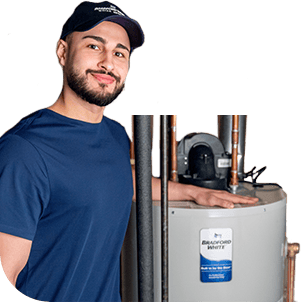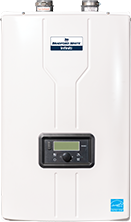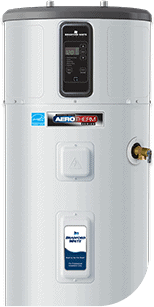Unlock Savings and Sustainability: A Guide to Heat Pump Water Heater Tax Credits and Rebates

Homeowners are constantly looking for ways to reduce their carbon footprints while simultaneously lowering their utility bills. One such opportunity comes in the form of heat pump water heaters – a technology that’s not only energy-efficient but might also be eligible for federal tax credits and rebates. This post will guide you through the what, who, and how of applying for these financial incentives, ultimately leading you to a more environmentally-friendly and cost-effective water heating solution.
Overview of Tax Credits and Rebates
The federal government offers a variety of tax credits for homeowners who make energy-efficient upgrades to their homes, including the installation of heat pump water heaters. These devices use electricity to move heat from one place to another instead of generating heat directly, making them two to three times more energy-efficient than conventional electric water heaters.
Furthermore, various states, localities, and utility companies extend rebates and incentives to promote the adoption of these environmentally friendly water heaters. Together, these financial incentives not only lower the initial investment cost but also contribute to long-term savings on energy bills. You can search here for available rebates and tax credits in your area.
Eligibility Criteria
To tap into these savings, it’s crucial to understand the eligibility criteria for both tax credits and rebates. Generally, for the federal tax credit:
- The heat pump water heater must be installed in a primary or secondary residence located in the U.S.
- It must meet specific energy efficiency criteria set by the Department of Energy. Learn more about the Heat Pump Water Heaters Tax Credit here.
For rebates, criteria can vary widely depending on the offering entity. Common qualifications include:
- Purchasing and installing equipment within a certain timeframe.
- Buying a model that meets certain ENERGY STAR® or energy efficiency qualifications. Learn more about ENERGY STAR® certifications for heat pump water heaters here.
- Residency within a specific location or utility service area.
How to Claim
Claiming these incentives doesn’t have to be a complex process:
- Documentation is Key: Keep all receipts and manufacturer’s certificates for the heat pump water heater, as they typically contain information about energy efficiency.
- IRS Form 5695: For federal tax credits, fill out IRS Form 5695 and submit it with your tax return. This form is specifically designed for residential energy credits. Learn more about this form here.
- Utility and State Rebates: Check with your local utility company or state energy office for applicable rebates. They often have a separate application form and may require a copy of your sales receipt and installation certificate.
- Deadlines Matter: Be aware of deadlines for both tax credit and rebate applications, as missing these can disqualify you from receiving the incentive.
Future of Heat Pump Water Heaters
The move toward sustainable home water heating solutions is gaining momentum, and heat pump water heaters are at the forefront of this shift. With growing environmental concerns and technological advancements, the market for these appliances is expected to expand. This growth signifies not only increased savings and benefits for homeowners but also a substantial contribution to reducing the overall energy consumption and greenhouse gas emissions of residential sectors.
Conclusion
Investing in a heat pump water heater is a smart choice for any homeowner looking to combine energy efficiency with significant savings. The availability of federal tax credits and various rebates further sweetens the deal, making now an opportune time to consider making the switch. By understanding and acting on this information, you can take a significant step toward a more sustainable and cost-effective future.
Call to Action
If you’re inspired to transform how your home approaches energy use, start exploring your options for heat pump water heaters today. Check out the advanced AeroTherm® Series Heat Pump Water Heater from Bradford White.
Remember to share this post with friends and family who might also benefit from these energy savings and sustainability tips. Together, we can make a difference, one energy-efficient upgrade at a time.



